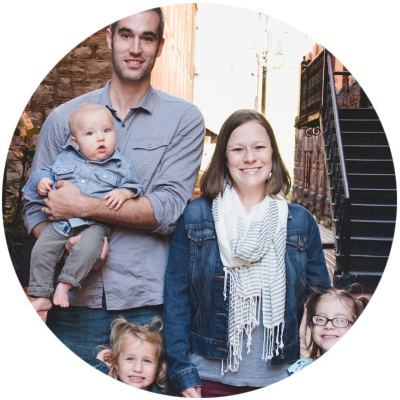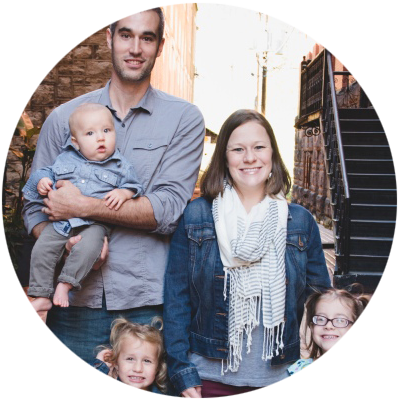My wife and I did not grow up in the Vineyard movement. She grew up in the Lutheran church and I grew up what I call “straight-laced evangelicalism.” We prayed and believed God answered prayer, but our understanding of the role of the Holy Spirit wasn’t fully fleshed out. The gifts of the Spirit were often neglected or explicitly rejected. This version of evangelicalism rejected all consumption of alcohol and often seemed suspicious of groups that allowed women to lead or that pursued things like social justice or scholarship.
When I was in my mid-twenties I began looking beyond the walls of the denomination I had been brought up in. What was this social justice stuff I was hearing more about? How might I use the intellectual bent God had planted in my soul? Was I tuning into the work of the Holy Spirit?
Finding a People
All of these thoughts were swirling around my mind when we settled in New Haven, CT and followed a friend into a year-old church plant called Elm City Vineyard. This was a church like none I had ever seen. It was full of a diverse and eclectic assortment of Yale Students, street people, and folks from all kinds of denominational backgrounds
At this church, I saw concern for the homeless alongside a deep appreciation for heartfelt worship, community, healing prayer, and intellectual integrity. It also didn’t hurt that the pastors took us out for Thai after worship one week.
Though we loved Elm City Vineyard and would for years refer to it as the best church we had ever attended, our sojourn in New Haven was a short one. We moved back to northwestern PA, where there was no Vineyard, and we soon found ourselves in the denomination I had grown up in.
Distinctives Matter
But we weren’t completely settled. We loved the people, but we thought some of the theology and policy of our denomination hindered our efforts to see folks, especially millennials like us, come to know the Lord. As we felt God calling us in a new direction, church planting, I knew that we had to plant in a movement that would fully support us without making us jump through any theological hoops.
Thanks to our experience at Elm City Vineyard years before, we knew enough about the Vineyard to be interested. As I talked with friends in the Vineyard and watched videos like these on the distinctives of the Vineyard movement, I began to feel like I had found my people. There were no hoops; every single one of the distinctives resonated with my heart.
I started plugging into national Vineyard groups like the Society of Vineyard Scholars, where I found other folks who deeply valued scholarship but still worshipped and prayed together like people who knew God was in the room. I was getting hooked.
Coming Home
On top of all of this, I found out a few months later that the Vineyard was one of the only movements in the country that had an explicit church planting initiative aimed at planting in small towns and rural areas. I remember tearing up when I first found Multiply Vineyard’s Small Town USA initiative.
For someone who grew up in a corner of rural America largely passed over and forgotten by church planting movements, it mattered that folks in the Vineyard were still willing to “go where the people are” whether that meant big cities or small towns.
In the fall of 2016, Aimee and I and a small team planted Oil City Vineyard in a small town close to where we grew up. We love the Vineyard and thank God for leading us to this movement and these people. It really does feel like coming home.
 Charlie Cotherman is the senior pastor of the Oil City Vineyard. After spending time in various places and pursuing various vocational avenues Charlie has settled into confidence about his three callings —husband/father, pastor, and scholar/teacher. If Charlie isn’t changing Benton’s diaper or waiting for Elliana and Anneliese to be done with gymnastics, you’ll probably find him with his nose in a book or enjoying coffee and a conversation with a friend at a local cafe.
Charlie Cotherman is the senior pastor of the Oil City Vineyard. After spending time in various places and pursuing various vocational avenues Charlie has settled into confidence about his three callings —husband/father, pastor, and scholar/teacher. If Charlie isn’t changing Benton’s diaper or waiting for Elliana and Anneliese to be done with gymnastics, you’ll probably find him with his nose in a book or enjoying coffee and a conversation with a friend at a local cafe.





